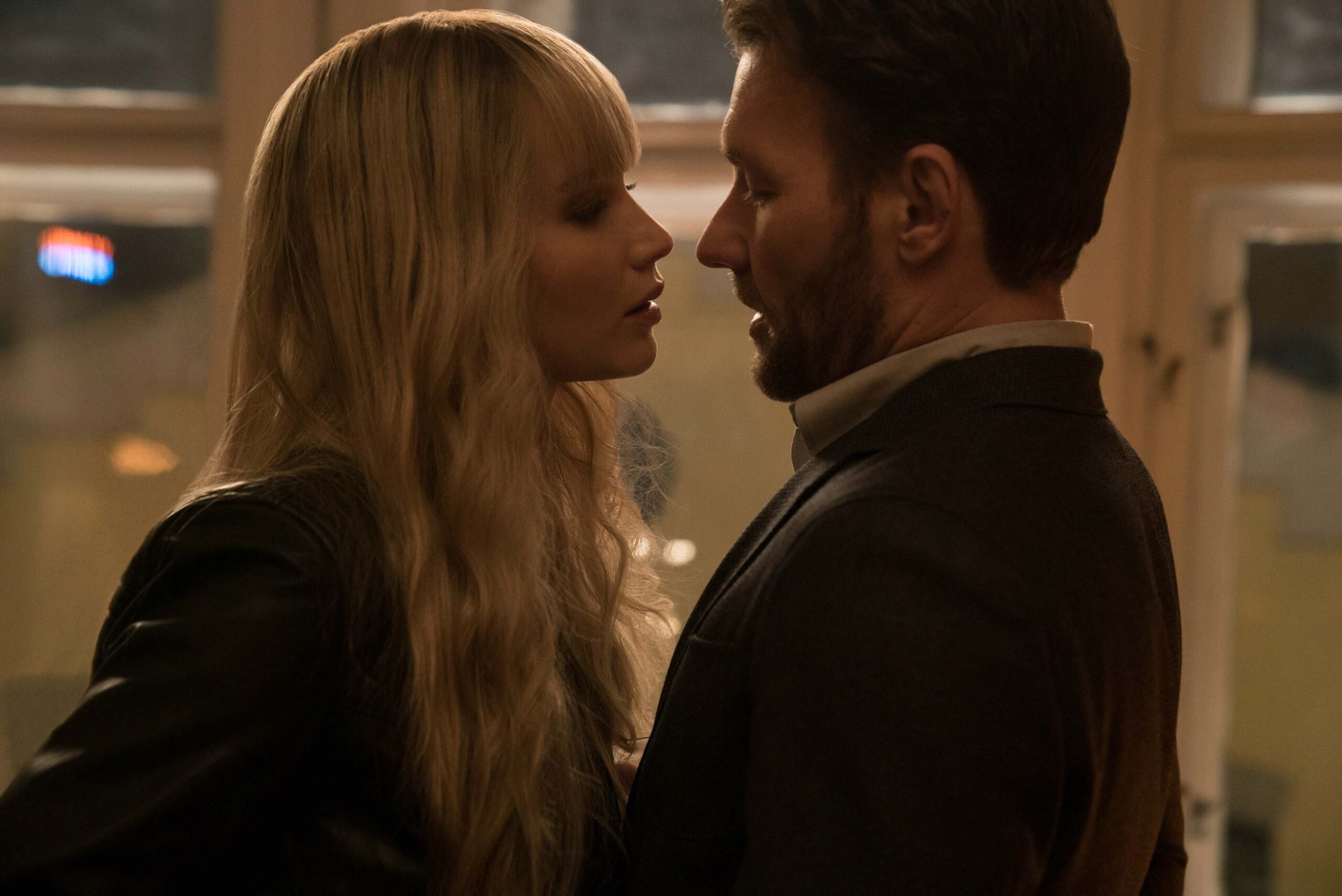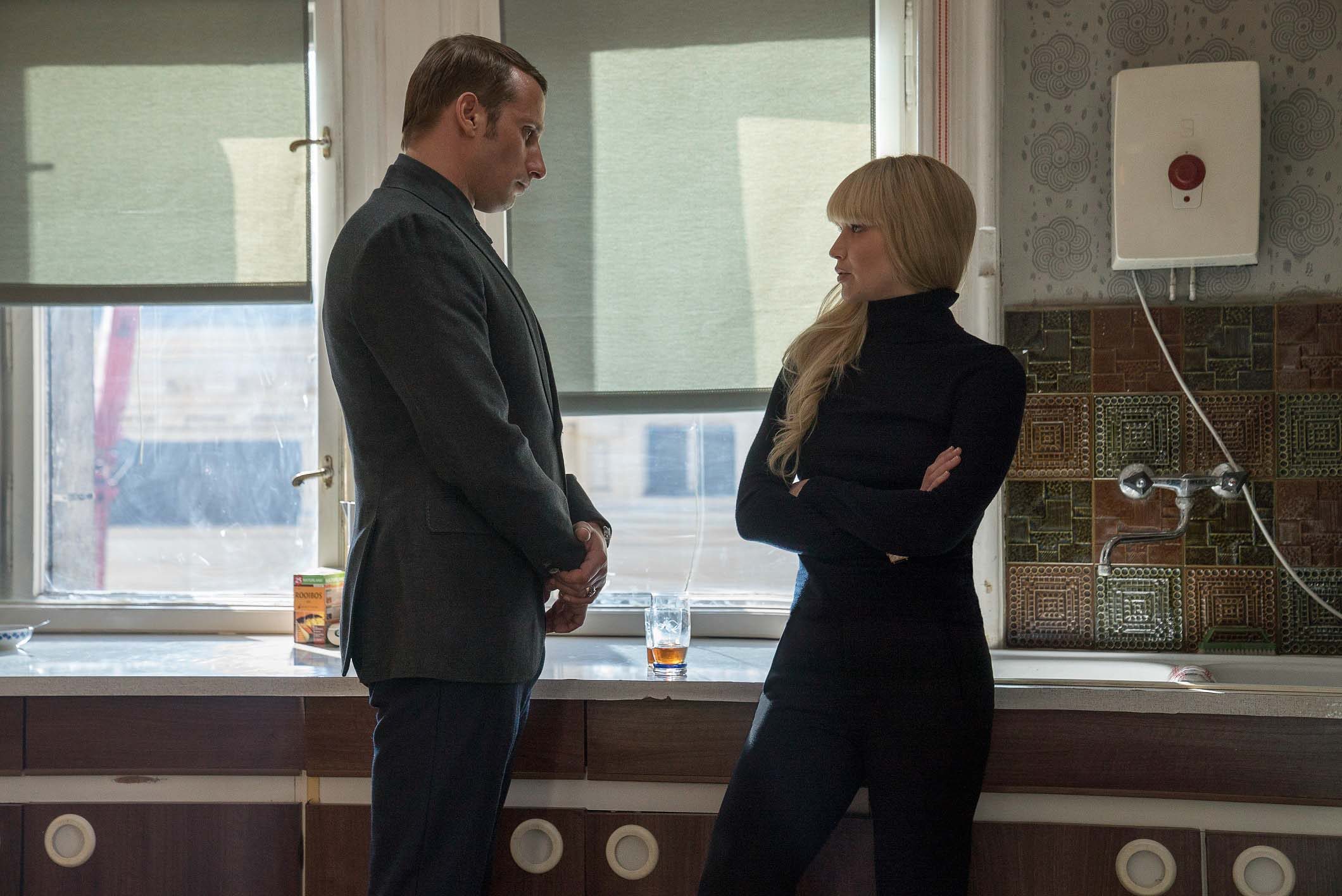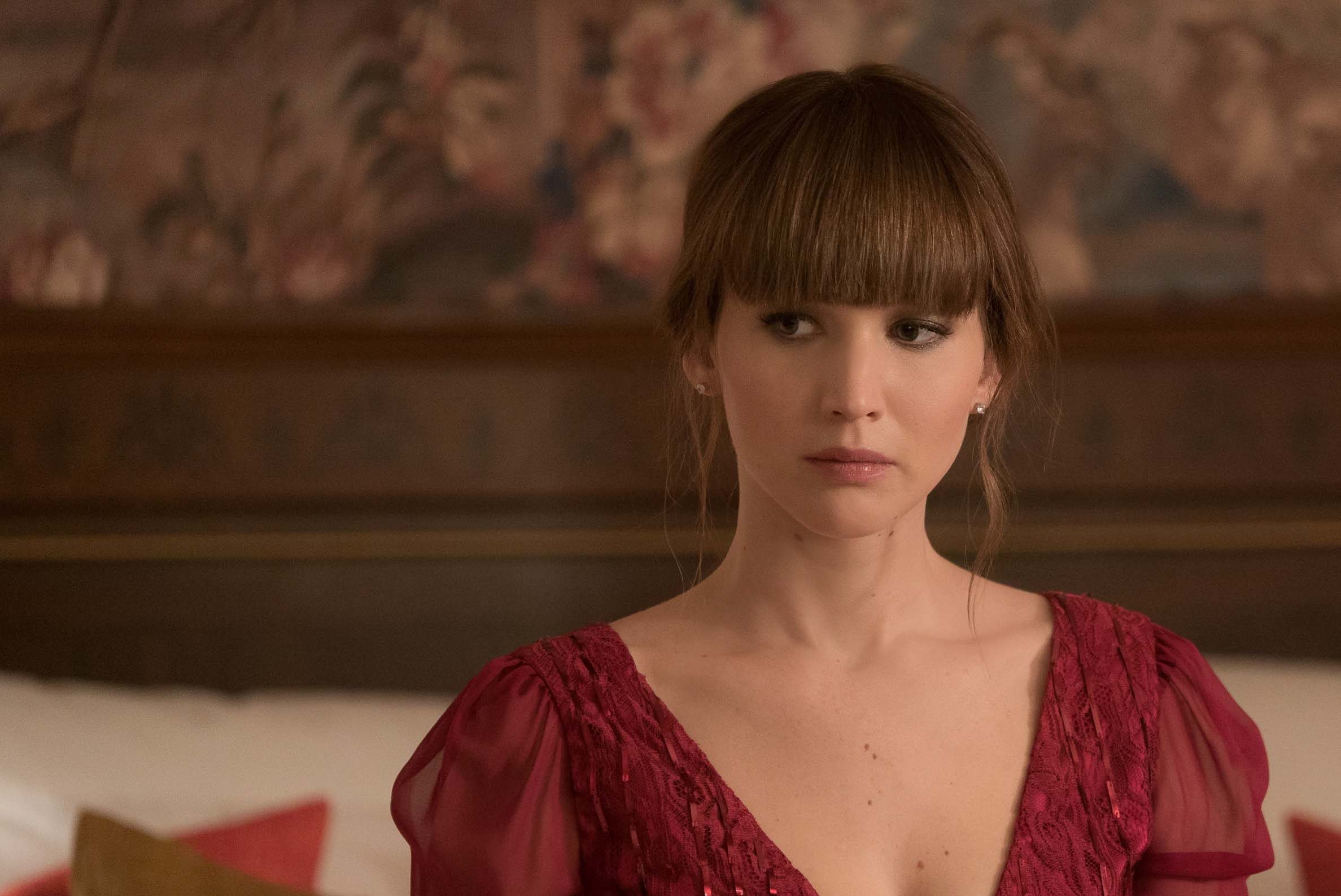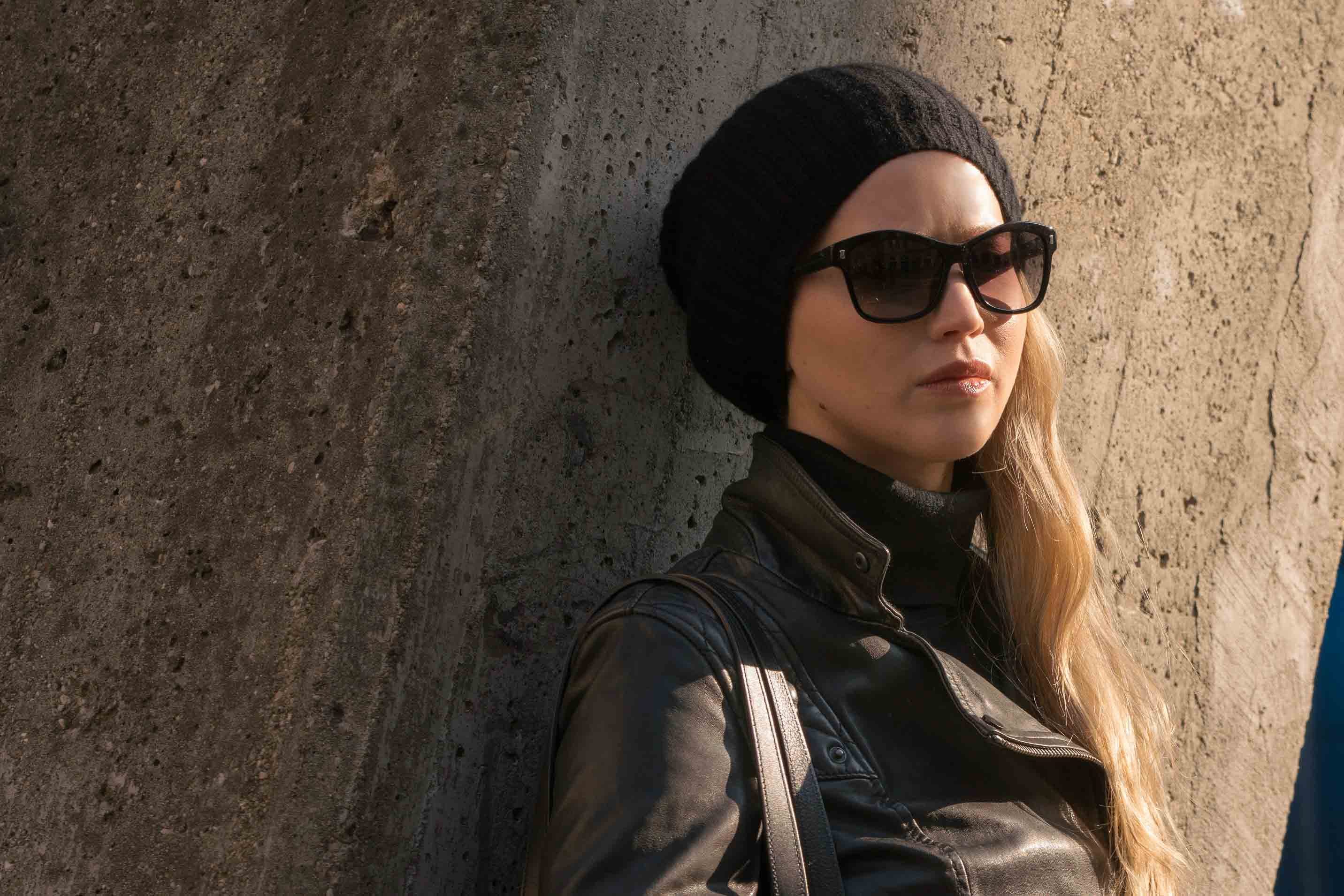SUMMARY
This is AI generated summarization, which may have errors. For context, always refer to the full article.

MANILA, Philippines – We’re set to see Jennifer Lawrence on the big screen again soon, this time in Francis Lawrence’s thriller Red Sparrow.
The upcoming movie, which is based on the novel of the same name by former CIA operative Jason Matthews, follows Dominika Egorova (Jennifer), a Russian spy who falls in love CIA officer (Joel Edgerton) and considers becoming a double agent.
In the interview below, from distributor 20th Century Fox, director Francis talks about how Jennifer learned ballet for the film, what it was like to speak with Jason, and whether US-Russia relations was an issue he considered when making the film.
Red Sparrow is based on the novel by Jason Matthews, a former CIA operative. Does it draw on his experience as a real agent?
Well, I don’t know every detail about Jason’s experiences but I can say he’s a really fascinating guy to have dinner with! It’s true that he and his wife were active CIA spies and travelled around the world. I think they spent a bunch of time in Rome, a bunch of time in Budapest, where we actually shot the film, and they tell crazy stories about doing drops out of moving cars and trying to find infiltrators back in the 80s, unbelievable stories.
With growing tension between Russia and the States, the film feels very timely. Was that something you thought about while making it?
Well, it’s interesting. When we started working on the story, I fell in love with it because I fell in love with the story of the girl in the movie. I fell in love with the character, I fell in love with her dilemma, and I fell in love with how she deals with that dilemma. I’m really attracted to stories about isolated, quite lonely characters, and that’s what pulled me in. Topically and thematically, the Cold War, when we started the project, was sort of irrelevant. That wasn’t back in the news in the way that it is now. So oddly, in the process of developing the script and making the movie, that became a new big thing, especially with the election and the accusations about Trump and his connections to Russia. It’s sort of sparked up again. I would just say there’s an added level of relevancy, but it’s not a political film. It’s a film about a character journey.

What did you watch while researching the film?
I watched a lot of spy movies. I do a lot of research, and I’m influenced by photographs and by some movies and by watching documentaries about ballet. I’m just influenced by a lot of things, and not any particular spy movies, necessarily. I mean I probably watched 20 various spy movies, from the old Le Carré things, to Tinker Tailor, to Bourne movies and things like that, but a lot of them don’t have really anything to do with this world, because it’s such a different character. There’s more an element of something like La Femme Nikita than there is spy films, because La Femme Nikita is more of a personal story. It’s really about her; it’s not about the politics. The original one – the Luc Besson one – not the American one. [Laughs].
You mention ballet – obviously, the lead character, Dominika, is a ballerina. Did Jennifer Lawrence have to train for that?
Yeah. She did about 3 or 4 months of training for 3 or 4 hours a day. I will say that most of it was just in terms of character work, because ballerinas hold themselves differently and walk differently and all that. She did have to learn the dance, but with four months of training, there’s no way you’re going to even be close to what a principal ballerina can do. So she had a dance double, Isabella Boylston, but Jennifer had to go out there in front of an audience and do the dance as well, for us to make the sequence work and also use some close-ups of her where she’s doing the dance. But she trained mostly for the shape of her body and the way she sort of carries herself, and the posture, and all of that.

You’ve said that dance was a key to understanding the film’s wider themes. Is that something that comes into play with the action sequences?
Well it’s actually not an action movie. It’s more of a suspense thriller. It’s the planning and plotting, the intrigue and the moves that Dominika’s making, that to me carry the theme of dancing all the way through. Part of that is the character has the discipline and the grace of a dancer. And part of it is that the moves that she ends up making are so intricate and complicated and disciplined and graceful that it ends up feeling like a dance. You could say that she could also have been a chess player in a different version of the movie and that would also work, but for me, because she was a ballet dancer, I kind of carried the idea through the rest of the movie.
The film is also about seduction, isn’t it?
I think the movie will be surprising to people in the sense that there’s much less obvious seduction than people might think. When you see a set-up for a movie like this, you think that the character’s going to dress sexily and wear heels and put on some red lipstick and go and bat her eyelashes and stuff. The character is much smarter than that, and dealing with somebody, in the movie, that’s also much smarter than that.
The seduction is much more complicated than I think one would normally think for a movie like this. A huge part of the movie is the idea of kind of figuring out what the target needs and wants. It’s figuring out the puzzle of the person. And the target that she spends half the movie going after is more sophisticated than someone that just needs a little flirtation.

Dominika’s really just trying to survive, yes?
Essentially, yeah. That’s what I really love about the movie. It doesn’t land where you expect a spy movie to land. You have the sort of Tinker Tailors, which are very political and dense, and then you’ve got the kind of Bond, Bourne, gadget-y action movies. This one is sort of in its own zone, because it’s really a personal character story, and she really is trying to survive.
There’s a sequence in the movie where she gets horribly injured in the ballet, and she discovers that it was done on purpose, that she was sabotaged because a guy that she trusted was trying to give a chance to be a principal ballerina to somebody else. He lands on her leg and breaks her leg really quite horribly, and very early on in the movie she goes and tracks them down, once she knows this has happened, and follows them into a steam room where they’re having sex, and she beats the crap out of them with her cane. It’s very early on the movie and it’s very surprising, because it’s not what you think you would see the hero of your movie doing. Really quickly you see that she’s in this horrible predicament and she’s trying to survive, but she also has this violent streak and she’s prone to anger, prone to violence, and to acting impulsively.
Is now a good time for female heroes in Hollywood?
Sure, I think it’s a great time, but I’m not doing it because I think it’s a good time. I think any time should have been a good time for a female lead.
Red Sparrow opens in Philippines theaters on February 28. – Rappler.com
Add a comment
How does this make you feel?
There are no comments yet. Add your comment to start the conversation.